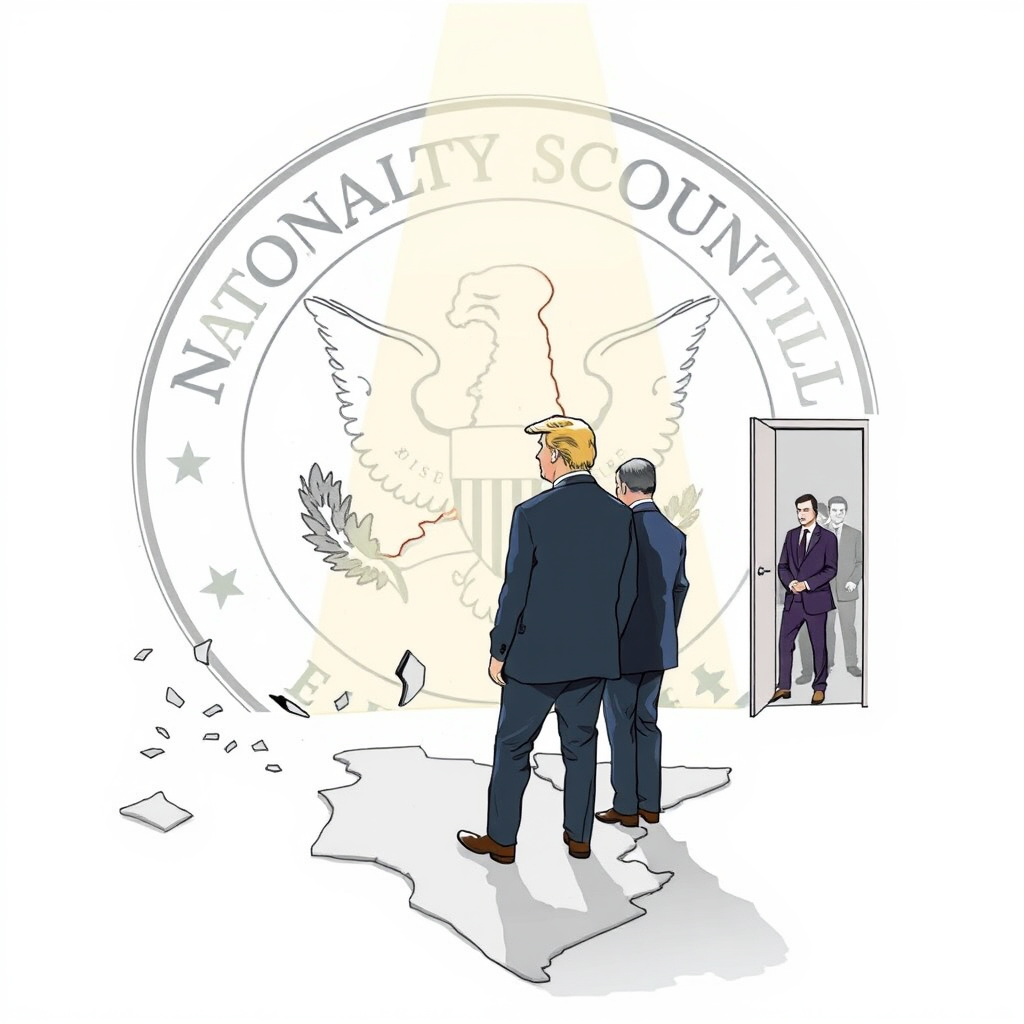Trump Overhaul Triggers NSC Exodus and Policy Shift

Significant upheaval is occurring within the National Security Council (NSC), prompting concerns about a potential dismantling of established foreign policy processes, according to CNN’s Alex Marquardt. Reporting on the anticipated changes following recent personnel shifts, Marquardt detailed a growing sense of unease among NSC staffers, with many actively seeking employment elsewhere.
The changes began with the sidelining of National Security Advisor Mike Wallace, with Secretary of State Marco Rubio assuming an interim role expected to last several months. However, the restructuring goes far beyond a simple leadership change. Sources indicate Rubio intends to dramatically reduce the size of the NSC, centralizing decision-making power with President Trump and his closest advisors. This shift will significantly limit deliberation at lower levels, effectively diminishing the role of the NSC as a coordinating body for American foreign policy.
Marquardt’s reporting suggests this isn’t merely a streamlining effort, but a fundamental alteration of how the U.S. conducts its foreign affairs. The NSC, traditionally responsible for coordinating policy across various departments and agencies, is facing a potential reduction in influence. Fewer meetings are being held, and current staff are being asked to re-interview for their positions, fueling anxieties about job security.
The atmosphere within the NSC is described as “chilled,” stemming from the departures of key figures like Wallace and his deputy, Alex Wong, as well as previous staff purges. Adding to the pressure, prominent Trump supporter Laura Loomer has publicly called for the firing of numerous NSC staffers, a request that has reportedly been heeded.
These changes are expected to accelerate following the President’s recent trip to the Middle East, potentially reshaping U.S. foreign policy coordination and engagement. While some degree of personnel change is typical with new administrations, the scale and nature of this restructuring raise serious questions about the future of American foreign policy expertise and the potential for more centralized, less deliberative decision-making. The erosion of a traditionally robust coordinating body like the NSC could lead to a less informed and potentially more erratic foreign policy approach.